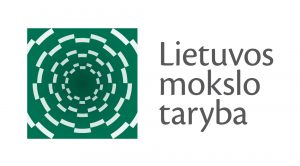„Reasons for not receiving cash social assistance when you are entitled to it, and how to resolve them, (NON-TAKE-UP)“, No. S-REP-21-6

Project No. S-REP-21-6
Project title: „Reasons for not receiving cash social assistance when you are entitled to it, and how to resolve them, (NON-TAKE-UP)“
Project duration: from 2021-03-01 to 2022-02-28
Project manager: doc.dr. Vida Česnuitytė
Project result summary: The aim of the project is to identify the causes and extent of non-receipt of cash social assistance benefits in Lithuania and to develop a methodology for identifying non-receipt of social assistance benefits in municipalities and at national level. The project focuses on two main forms of social assistance: social allowances and reimbursement of housing heating, hot water and drinking water costs.
The research revealed that the main groups of reasons for non-uptake of social assistance benefits are: lack of information; complexity of bureaucratic/administrative procedures; shadow income; and social barriers/stigmatisation. There is a clear difference in the perceptions of the population and experts on the reasons for non-collection of cash social assistance. According to the population, the main reasons are lack of information and complicated bureaucratic procedures, while according to the experts, the main reasons are lack of livelihood (monetary or non-monetary), lack of information, fear of negative reactions from others or fear of shame/stigma. In addition, geographical differentiation in the non-receipt of social assistance has emerged.
The following groups of potential non-recipients of cash social assistance have been identified: ‘ignorant’, ‘anti-formalist’, ‘underground’ and ‘frugal’, with their respective characteristics. It was found that those who do not receive cash social assistance are often very young or retired, widowed, living in a rural area or a small settlement, with adult members of the household who are unemployed. If a middle-aged person does not receive cash social assistance, he/she is very likely to have the following additional characteristics: male, single/divorced, unemployed, with harmful habits, addictions or disabilities. If the person is not in paid employment and is retired, or is in paid employment but without a contract, and also has a secondary level of education without vocational training, or a lower level of education, it is likely that he/she is in need of a livelihood and is a potential recipient of cash social assistance. The sources of income of those who do not receive support are dominated by wage employment income and old-age pension, and sometimes they have informal sources of income. On some characteristics, non-recipients of cash social assistance are more similar to those who are already receiving assistance, on other characteristics they are more similar to those who do not need assistance. It is therefore likely that people who are currently experiencing deprivation but have never been in such a situation before, do not have such examples in their environment, and also lack other skills in order to obtain information about their entitlement, where to apply for support, etc., are often not taking cash social assistance. In other words, they are potentially completely new clients of cash social assistance who are not familiar with its veto.
There is a substantial difference between the perceptions of residents and experts on the extent of non-withdrawal of cash social assistance in the country. According to the experts, the extent of non-receipt of cash social assistance in the country is not significant, and only those people who do not want to receive cash social assistance do not receive it. The Project Working Group has developed four methods of measuring the extent of non-receipt of cash social assistance, which are tentatively named Objective Quantitative, Subjective Quantitative (based on the assessment of the standard of living), Subjective Quantitative (based on the social circle) and Expert. When these methods were tested on the Project Survey data, the following rates of non-receipt of cash social assistance were found: 21% for the Objective Quantitative method, 23% for the Subjective Quantitative method (based on the Living Standards Assessment), The Subjective Quantitative method (based on the social circle) identified the extent of non-withdrawal of cash social assistance according to the individual reasons for non-withdrawal: not knowing that they are entitled to it – 63%; because it is too difficult to do so – 58%; because they have other sources of livelihood (monetary or non-monetary) – 52%; not knowing where to go – 51%; because of the small amount of the benefit – 41%; because of the fear of negative reactions from others or because of the experience of shame – 39%.
The project was carried out under the Lithuanian Research Council (LRC) supported instrument for research projects.